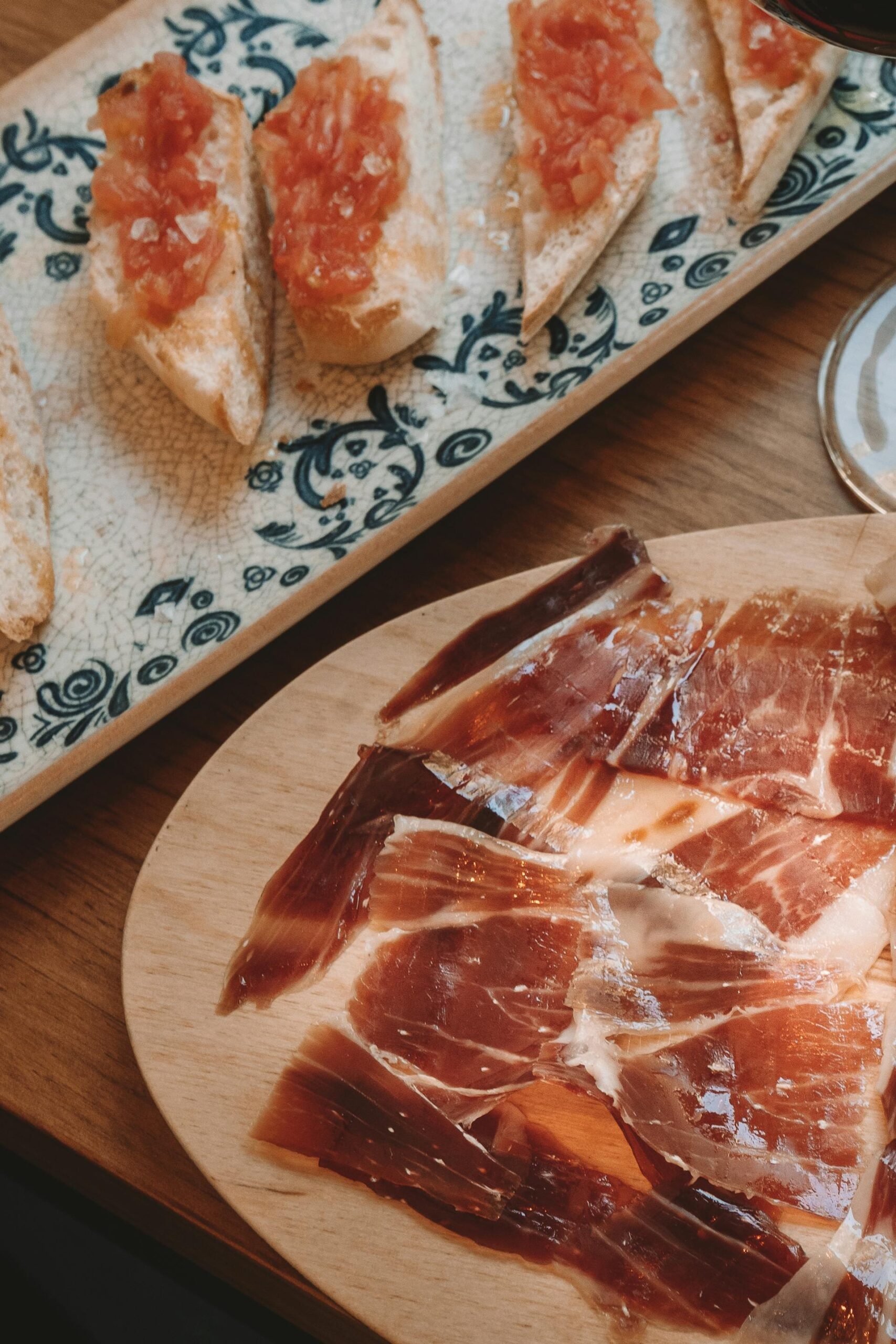
Introduction
Spain is famous for its cured meats, especially jamón, a traditional Spanish delicacy. Among the various types of jamón, Jamón Ibérico and Jamón Serrano stand out for their unique flavors, meticulous production process, and cultural significance.
What is Jamón?
Jamón is a type of dry-cured ham, typically made from the hind legs of pigs. The two main types are Jamón Ibérico and Jamón Serrano, which differ in terms of the breed of pig, the diet of the animal, and the curing process.
- Jamón Serrano: Made from white pigs and typically produced in the mountainous regions of Spain, Jamón Serrano is cured for around 7 to 16 months. It has a milder, slightly salty flavor, making it a favorite for casual meals and tapas.
- Jamón Ibérico: The crown jewel of Spanish jamón, Jamón Ibérico comes from the Iberian breed of pigs. These pigs are often free-range and feed on a diet of acorns, giving the ham a rich, nutty flavor. The curing process can last anywhere from two to five years, resulting in a more complex and intense flavor profile.
The Production Process of Jamón Ibérico
The process of making Jamón Ibérico is a blend of tradition and craftsmanship:
- Salting: The hind legs of the pig are covered in sea salt to draw out moisture and preserve the meat.
- Resting Period: After salting, the ham is hung to rest and cure in cool, humid conditions. This allows the flavors to develop.
- Aging: The final step is the aging process, which can take several years. During this time, the fat in the meat melts slowly, enhancing its flavor and texture.
Types of Jamón Ibérico
Jamón Ibérico is further categorized based on the pig’s diet:
- Jamón Ibérico de Bellota: The most prized variety, from pigs that roam freely and feed primarily on acorns. The acorns contribute to the ham’s rich, buttery flavor and marbled texture.
- Jamón Ibérico de Cebo: This type is made from pigs that are fed a combination of grain and acorns, resulting in a slightly less intense flavor than Jamón de Bellota but still highly sought after.
Health Benefits of Jamón Ibérico
Surprisingly, Jamón Ibérico is not just a delicious treat, but it also offers some health benefits:
- High in Oleic Acid: Due to the acorn-rich diet of the Iberian pigs, Jamón Ibérico contains a high percentage of oleic acid, a monounsaturated fat that is beneficial for heart health.
- Rich in Protein: Jamón is also an excellent source of protein, making it a nutritious snack in moderation.
Pairing Jamón Ibérico
For the best experience, pair Jamón Ibérico with complementary flavors:
- Wine: A glass of Rioja or Sherry complements the nutty richness of the ham.
- Cheese: Pair with Spanish cheeses like Manchego for an authentic taste of Spain.
- Bread: Simple accompaniments like crusty bread or olive oil highlight the complex flavors of the jamón.
Conclusion
Jamón is more than just cured ham; it’s a cultural symbol of Spain. Whether you opt for the more accessible Jamón Serrano or indulge in the luxurious Jamón Ibérico de Bellota, you’re experiencing centuries of tradition and craftsmanship in every bite.




